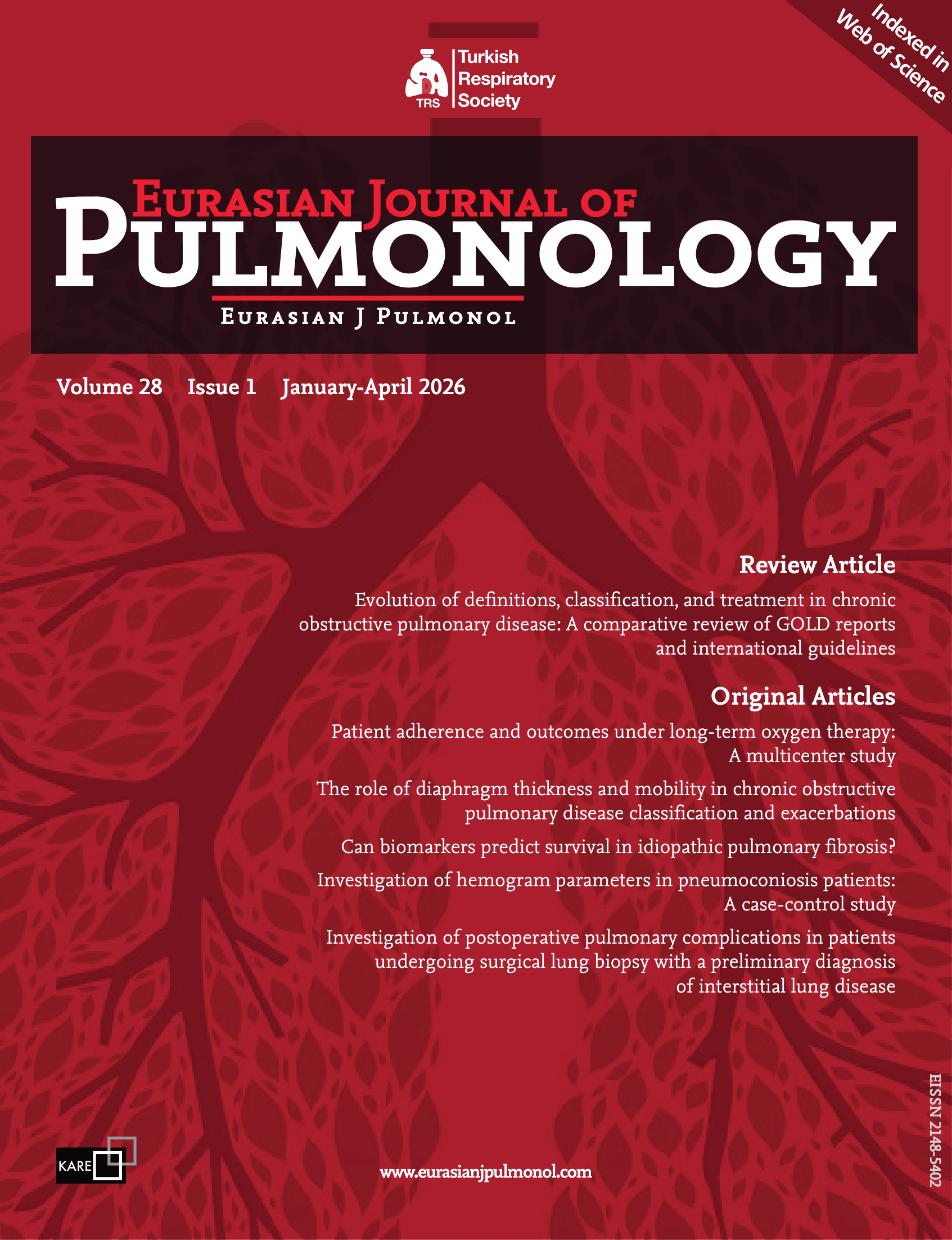2Department of Pulmonology, Dr. Suat Seren Chest Diseases and Surgery Training and Research Hospital, Izmir, Türkiye
3Department of Pulmonology, University of Health Sciences Izmir Faculty of Medicine, Dr. Suat Seren Chest Diseases and Surgery Training and Research Hospital, Izmir, Türkiye
Abstract
BACKGROUND AND AIM: Malignant pleural effusion (MPE) is a common complication of cancer and is associated with poor prognosis. This study aimed to investigate the effect of a scoring system (alkaline phosphatase-lactate dehydrogenase [AL] score), created by combining serum alkaline phosphatase (sALP) and pleural fluid lactate dehydrogenase (pLDH), on survival in patients with MPE.
METHODS: This single-center retrospective study included patients with confirmed MPE. The association between the AL score and overall survival (OS) was analyzed.
RESULTS: A total of 231 patients were included. The median OS was 9.92 months in patients with an AL score of 0–1, and 4.96 months in those with an AL score of 2 (hazard ratio: 1.50, 95% confidence interval: 1.053–2.163, p=0.02). In multivariate analysis, age, LENT score [Pleural fluid LDH (lactate dehydrogenase), ECOG (Eastern Cooperative Oncology Group) performance status, neutrophil-to-lymphocyte ratio, and tumor type score], and AL score were associated with OS (p=0.032, p=0.001, and p=0.03, respectively).
CONCLUSIONS: To our knowledge, this is one of the few studies in the literature to evaluate the AL score in the context of MPE. The AL score can be used to predict survival in patients with MPE. Because it is easy to calculate and provides rapid results, it is considered useful for guiding clinicians in the early stages of management.




 Merve Ayık Türk1
Merve Ayık Türk1 




